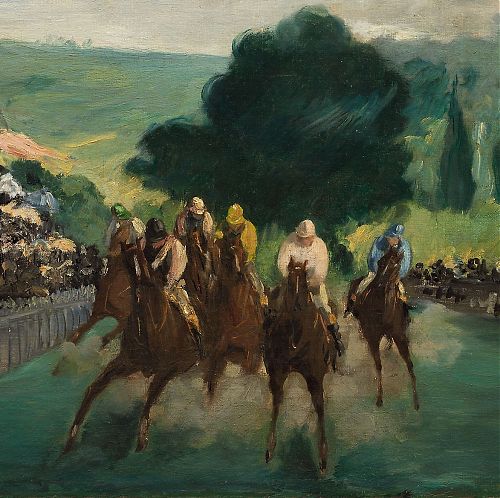Contributors to Volume 33, No. 1-2
Ericka Beckman
Ericka Beckman is associate professor of Romance languages at the University of Pennsylvania. She is the author of Capital Fictions: The Literature of Latin America’s Export Age(Minnesota, 2013). Her current book project, tentatively titled “Agrarian Questions: Latin American Literature in the Age of Development,” examines how twentieth-century literary fiction by authors such as, Rosario Castellanos, Juan Rulfo, José Donoso and José María Arguedas, registered capitalist transitions in the countryside, primarily in relation to three overlapping processes: agricultural commercialization and mechanization, urban out-migration, and land reform.
Nicholas Brown
Nicholas Brown is Professor of English and African American Studies at the University of Illinois at Chicago. His recent books include Autonomy: The Social Ontology of Art Under Capitalism and, as coeditor, Contemporary Marxist Theory: A Reader.
Jodi Dean
Jodi Dean teaches political and media theory in Geneva, New York. She has written or edited eleven books, including Comrade: An Essay on Political Belonging (Verso 2019), Crowds and Party (Verso 2016), The Communist Horizon (Verso 2012), and Democracy and Other Neoliberal Fantasies (Duke 2009).
Matthew Flisfeder
Matthew Flisfeder is an Associate Professor of Rhetoric and Communications at The University of Winnipeg. He is the author of Postmodern Theory and Blade Runner (Bloomsbury 2017), The Symbolic, The Sublime, and Slavoj Žižek’s Theory of Film (Palgrave Macmillan 2012), and co-editor of Žižek and Media Studies: A Reader (Palgrave Macmillan 2014).
Dan Hassler-Forest
Dan Hassler-Forest works as Assistant Professor of Media and Cultural Studies at Utrecht University. He has published books and articles on superhero movies, comics, transmedia storytelling, adaptation studies, critical theory, and zombies.
Kai Heron
Kai Heron recently completed his PhD in Politics and International Relations at The University of Manchester, UK. His research interests include political theory, psychoanalysis, Marxism and political ecology.
Anna Kornbluh
Anna Kornbluh is Associate Professor of English at the University of Illinois at Chicago. She is the author of The Order of Forms: Realism, Formalism, and Social Space (University of Chicago 2019), Marxist Film Theory and Fight Club (Bloomsbury “Film Theory in Practice” series, 2019), and Realizing Capital: Financial and Psychic Economies in Victorian Form (Fordham UP 2014). Her current research concerns impersonality, objectivity, mediation, and abstraction as residual faculties of the literary in privatized urgent times. She is the founding facilitator of two scholarly cooperatives: v21collective.org and interccect.com.
Leigh Claire La Berge
Leigh Claire La Berge is Assistant Professor of English at the City University of New York. She is the author of Wages Against Artwork: Socially Engaged Art and The Decommodification of Labor (Duke 2019), Scandals and Abstraction: Financial Fiction of the Long 1980s (Oxford 2014) and the co-editor of Reading Capitalist Realism (Iowa 2014). Her articles on the political economy of culture have appeared in American Literary History, Criticism, Postmodern Culture, South Atlantic Quarterly, and the Radical History Review.
Thomas A. Laughlin
Thomas A. Laughlin has a PhD in English Literature from the University of Toronto.
Mathias Nilges
Mathias Nilges is Professor of English at St. Francis Xavier University, Canada. He is the author of Right-Wing Culture in Contemporary Capitalism: Regression and Hope in a Time Without Future (2019), and he has co-edited five books, including most recently Literature and the Global Contemporary (2017— with Sarah Brouillette and Emilio Sauri), and Periodizing the Future: William Gibson, Genre, and Cultural History (2021— with Mitch R. Murray).
Benjamin Noys
Benjamin Noys is Professor of Critical Theory at the University of Chichester. His most recent book is Malign Velocities: Accelerationism and Capitalism (Zero Books, 2014).
Jacob Sloan
Jacob Sloan is a doctoral candidate in the English department at SUNY Buffalo. His research takes a comparative approach to the global proletarian novel and focuses on the vital relationship between literary realism, totalization, and humanist Marxism. Tracking proletarian realist representations of capitalist unevenness anad non-mechanistic class struggle in novels from the United States, Korea, South Africa, Palestine, China, and Kenya, he explores the importance of proletarian realism as both a narrative and theoretical intervention that pushes Marxism beyond stagist and non-agential conceptions of historical motion.
